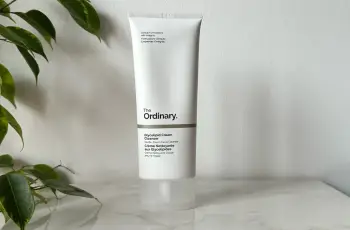
Do I Need to Exfoliate Before Using a Mask? A Complete Skincare Guide
If you’ve ever had a professional facial, you know how transformative it can be.
That radiant, baby-soft skin isn’t magic—it’s a result of multiple, intentional steps layered to cleanse, treat, and nourish your skin.
Most facials include a cleanser, exfoliant, steaming, extractions, a mask, and a finishing serum or cream. Each step plays a vital role in treating different layers and aspects of your skin.
So when we apply a face mask at home, it’s worth asking: Are we skipping essential steps like exfoliation? And more importantly, should we exfoliate before applying a mask to get better results?
The answer, in most cases, is yes.
Exfoliate Before a Mask—Here’s Why It Works
To get the most out of your face mask, it’s important that your skin is prepped. That means starting with clean skin and, ideally, exfoliating before applying the mask.
Exfoliation removes dead skin cells from the surface layer. Without this step, your mask may sit on top of built-up debris, limiting how well active ingredients penetrate your skin.
When you exfoliate beforehand, the mask ingredients can better absorb into the fresh, clean surface—resulting in brighter, clearer, more even-toned skin.
Should You Exfoliate Before or After a Face Mask?
Exfoliation should come before the mask in almost every routine.
Here’s why:
It clears away dirt, oils, and old skin cells.
It allows the mask’s ingredients to reach the skin more effectively.
It creates a smoother surface, so your mask applies more evenly.
Cleansing alone won’t always remove deep-seated buildup. A gentle exfoliant enhances your mask’s performance and gets you closer to that spa-quality glow.
Step-by-Step Routine for Exfoliating Before a Mask
To keep things simple, here’s a basic outline of how to use both an exfoliant and a mask in your skincare routine:
Remove makeup thoroughly. Use a gentle cleansing balm, oil, or micellar water to break down makeup, sunscreen, and excess oil.
Cleanse your skin. Use a non-foaming, pH-balanced cleanser to wash your face. This ensures your skin is clean without stripping it.
Exfoliate gently. Use a physical or chemical exfoliant to slough off dead skin cells. Don’t scrub harshly—use light pressure.
Apply your mask. Once your skin is exfoliated and slightly damp, apply your face mask of choice.
Rinse and follow with toner. Avoid toners with active acids like AHAs or BHAs right after exfoliating and masking.
Apply your serum and moisturizer. Finish with hydrating, calming, or restorative serums and creams.
Use SPF (if daytime). Always apply broad-spectrum SPF after your morning skincare routine.
What Are the Benefits of Exfoliating Before a Face Mask?
When you exfoliate before applying a mask, you help your skin in several ways:
Removes dead skin cells that block pores and dull the skin.
Improves absorption of actives like hyaluronic acid, vitamin C, or clay minerals.
Enhances skin texture, leaving it smoother and more even.
Boosts glow by uncovering newer, healthier skin layers.
Preps pores so detox masks can better pull out impurities.
This extra step can turn your weekly masking session into a luxury-level treatment—without leaving your bathroom.
Can I Use a Face Mask After Exfoliating?
Yes, but with a few precautions.
It’s important to choose a mask that doesn’t contain harsh actives like strong acids or retinoids right after exfoliating. Doing both in one session can lead to irritation or overexfoliation.
Avoid peel-off masks after exfoliating. These can pull at the skin and disrupt the barrier, especially if your skin is already sensitive.
Instead, opt for masks that hydrate, calm, or purify without stripping the skin. Clay, gel, or cream-based masks work well after exfoliation.
Can I Exfoliate and Use a Mask on the Same Day?
Absolutely—but not every day.
Exfoliating before a mask once or twice a week is usually enough. If you’re using strong chemical exfoliants (like AHAs or BHAs), take care not to overdo it.
Avoid using multiple exfoliating products on the same day. For example, don’t pair a glycolic acid toner with a clay mask that already contains salicylic acid.
Use one exfoliating product, followed by a gentle, nourishing mask.
What to Do After Using a Face Mask
Once you’ve removed your face mask, follow up with the rest of your routine:
Apply a toner. Choose one without exfoliating acids. Look for floral waters or hydrating mists.
Use a serum. Serums with niacinamide, peptides, or hyaluronic acid work well post-mask.
Moisturize. Lock in all the benefits with a soothing cream that supports the skin barrier.
Apply SPF (if daytime). Your skin may be extra sensitive after exfoliation and masking.
Ingredients to Look for After Exfoliating and Masking
After masking, your skin is more receptive to active ingredients. These options work for most skin types:
Hyaluronic Acid
Hydrates deeply and plumps the skin. Use a water-based serum while skin is still damp.
Niacinamide
Calms redness, refines pores, and balances oil production. Pairs well with most serums and moisturizers.
Vitamin C
Brightens the complexion and protects against free radicals. Best used in the morning under sunscreen.
Peptides
Help repair and firm the skin. Ideal for those focusing on anti-aging.
❌ Avoid: Strong Acids or Retinoids
Avoid applying glycolic acid, salicylic acid, or retinol right after exfoliating and masking unless your skin is used to these ingredients.
Signs You May Be Over-Exfoliating
While exfoliation is beneficial, overdoing it can harm your skin. Watch out for these signs:
Redness or irritation that lingers
Tightness or stinging when applying products
Flaky, dry patches
Breakouts or sensitivity to touch
If you notice any of these, scale back your exfoliation and give your skin time to heal.
Suggested Weekly Skincare Routine With Masks and Exfoliants
Here’s a simple weekly plan to help you balance exfoliation and masking:
Monday
Gentle cleanse, antioxidant serum, moisturizer, SPF
(No exfoliation)
Tuesday
Cleanse, exfoliate, hydrating mask, calming toner, moisturizer
Wednesday
Cleanse, vitamin C serum, light moisturizer, SPF
Thursday
Cleanse, clay or detox mask, toner, niacinamide serum, moisturizer
Friday
Cleanse, gentle exfoliant, barrier-repair cream
Saturday
Cleanse, exfoliate, hydrating or brightening mask, peptides, night cream
Sunday
Cleanse, minimal routine, hydration-focused products
How to Know What Works for Your Skin
Not all routines work the same for everyone. Try both exfoliating and masking routines on different days to see what your skin prefers.
Observe how your skin reacts:
Does it feel softer and glow after exfoliating first?
Do masks absorb better when skin is freshly exfoliated?
Are you seeing fewer breakouts or clogged pores?
Keep a journal to track changes. Over time, you’ll find your ideal routine.
Patch Testing New Products
Before introducing any new product—especially exfoliants or active masks—perform a 24-hour patch test. Apply a small amount to your inner forearm or jawline and wait to see if any irritation occurs.
This simple step can prevent adverse reactions, especially if you have sensitive or reactive skin.
Final Thoughts: Treat Your Skin to the Full Experience
The next time you reach for your favorite face mask, don’t skip the exfoliating step. Just like a facial at the spa, your at-home treatment will benefit from thoughtful preparation.
Exfoliating before masking boosts product performance, removes dull skin, and leaves your complexion softer, brighter, and more radiant.
And if you’re trying a new mask—whether it’s clay, cream, or gel—don’t forget to tag us in your glow-up selfies. We’d love to see your results!


